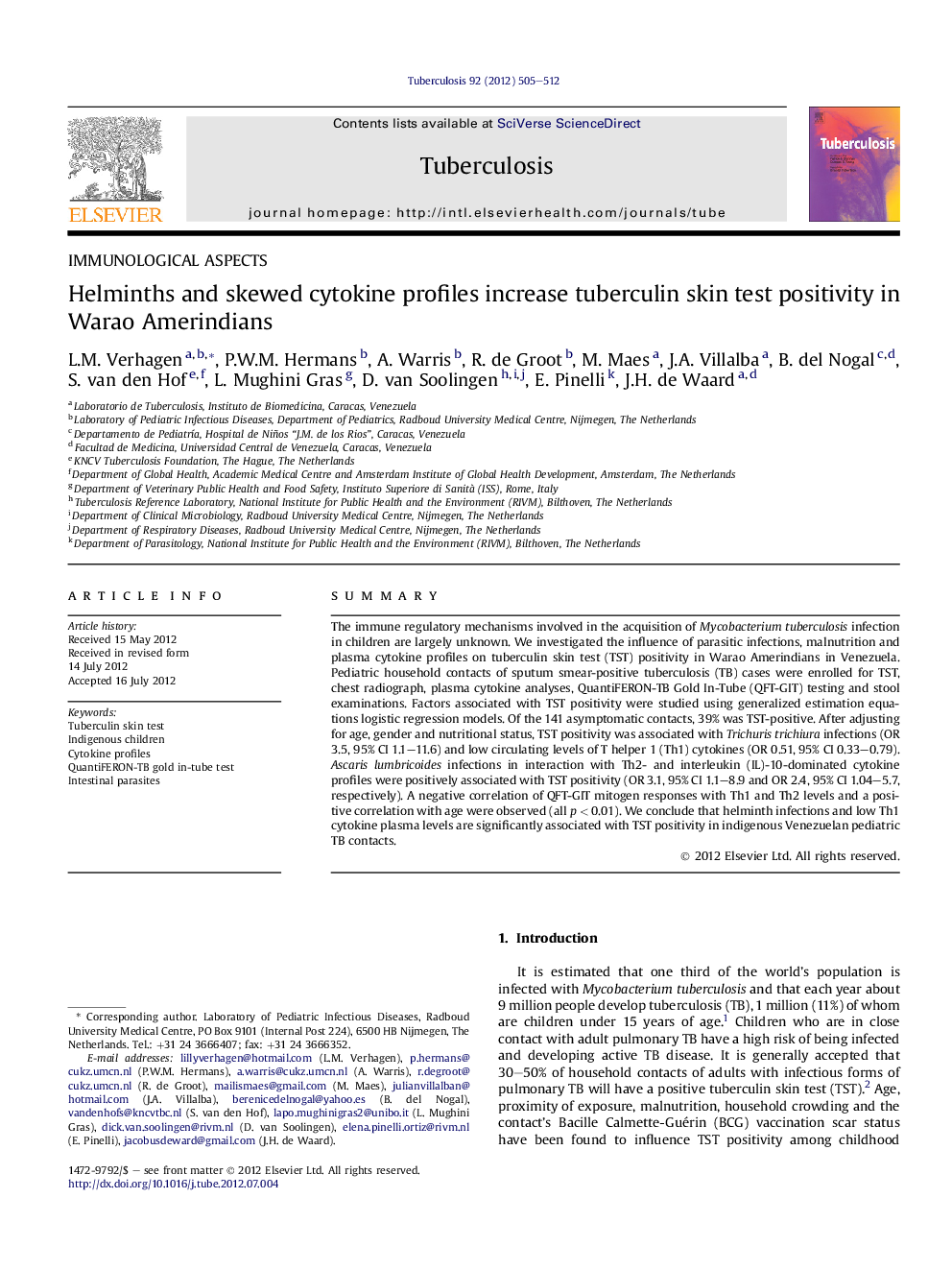| Article ID | Journal | Published Year | Pages | File Type |
|---|---|---|---|---|
| 10962176 | Tuberculosis | 2012 | 8 Pages |
Abstract
The immune regulatory mechanisms involved in the acquisition of Mycobacterium tuberculosis infection in children are largely unknown. We investigated the influence of parasitic infections, malnutrition and plasma cytokine profiles on tuberculin skin test (TST) positivity in Warao Amerindians in Venezuela. Pediatric household contacts of sputum smear-positive tuberculosis (TB) cases were enrolled for TST, chest radiograph, plasma cytokine analyses, QuantiFERON-TB Gold In-Tube (QFT-GIT) testing and stool examinations. Factors associated with TST positivity were studied using generalized estimation equations logistic regression models. Of the 141 asymptomatic contacts, 39% was TST-positive. After adjusting for age, gender and nutritional status, TST positivity was associated with Trichuris trichiura infections (OR 3.5, 95% CI 1.1-11.6) and low circulating levels of T helper 1 (Th1) cytokines (OR 0.51, 95% CI 0.33-0.79). Ascaris lumbricoides infections in interaction with Th2- and interleukin (IL)-10-dominated cytokine profiles were positively associated with TST positivity (OR 3.1, 95% CI 1.1-8.9 and OR 2.4, 95% CI 1.04-5.7, respectively). A negative correlation of QFT-GIT mitogen responses with Th1 and Th2 levels and a positive correlation with age were observed (all p < 0.01). We conclude that helminth infections and low Th1 cytokine plasma levels are significantly associated with TST positivity in indigenous Venezuelan pediatric TB contacts.
Related Topics
Life Sciences
Immunology and Microbiology
Applied Microbiology and Biotechnology
Authors
L.M. Verhagen, P.W.M. Hermans, A. Warris, R. de Groot, M. Maes, J.A. Villalba, B. del Nogal, S. van den Hof, L. Mughini Gras, D. van Soolingen, E. Pinelli, J.H. de Waard,
